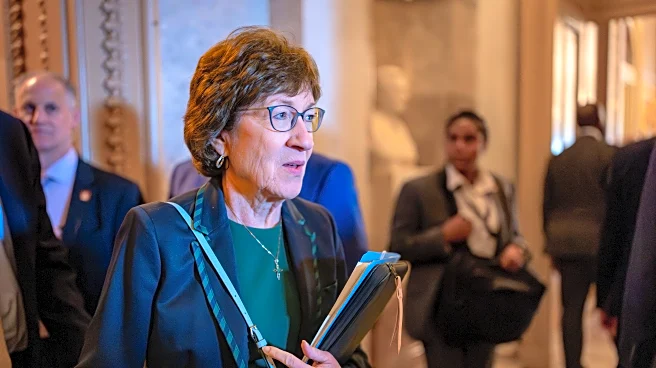What's Happening?
The U.S. economy is showing signs of a 'K-shaped' bifurcation, where wealthier Americans continue to spend while lower-income groups are pulling back. This divergence is evident in sectors such as food
and beverage, autos, and hospitality. Companies like Coca-Cola and McDonald's are adapting their strategies to cater to both high-income consumers and those seeking value options. The upcoming Consumer Price Index (CPI) report is expected to provide further insights into inflation pressures affecting different income brackets.
Why It's Important?
The 'K-shaped' economy highlights the growing disparity in consumer spending, influenced by inflation and economic uncertainty. Wealthier consumers benefit from stock market gains and rising home values, while lower-income groups face challenges with rising costs for essentials. This bifurcation impacts business strategies, as companies must address diverse consumer needs and preferences. Understanding these dynamics is crucial for policymakers and businesses aiming to navigate economic challenges and support equitable growth.
What's Next?
The CPI report will offer a clearer picture of inflation trends, influencing decisions by the Federal Reserve and businesses. Companies may need to adjust pricing strategies and product offerings to accommodate varying consumer demands. Policymakers will likely focus on measures to address economic disparities and support lower-income groups affected by inflation.
Beyond the Headlines
The 'K-shaped' economy underscores broader societal issues, including income inequality and access to resources. Businesses and policymakers must consider long-term strategies to bridge economic gaps and promote inclusive growth. The situation calls for innovative solutions to support diverse consumer needs and foster economic resilience.









